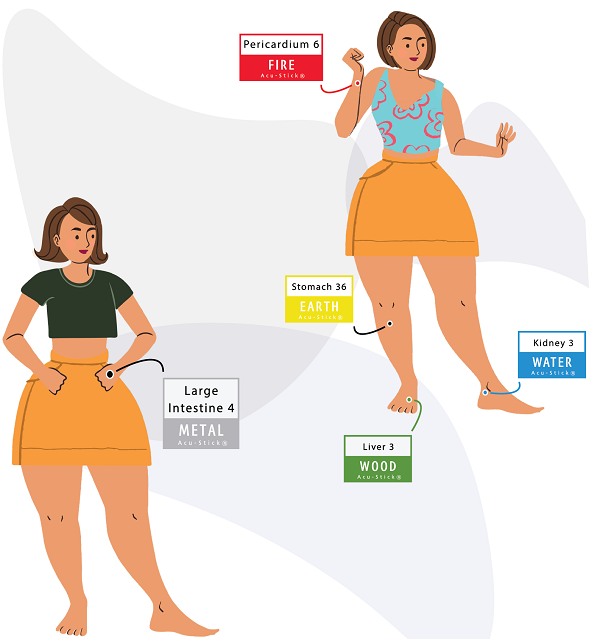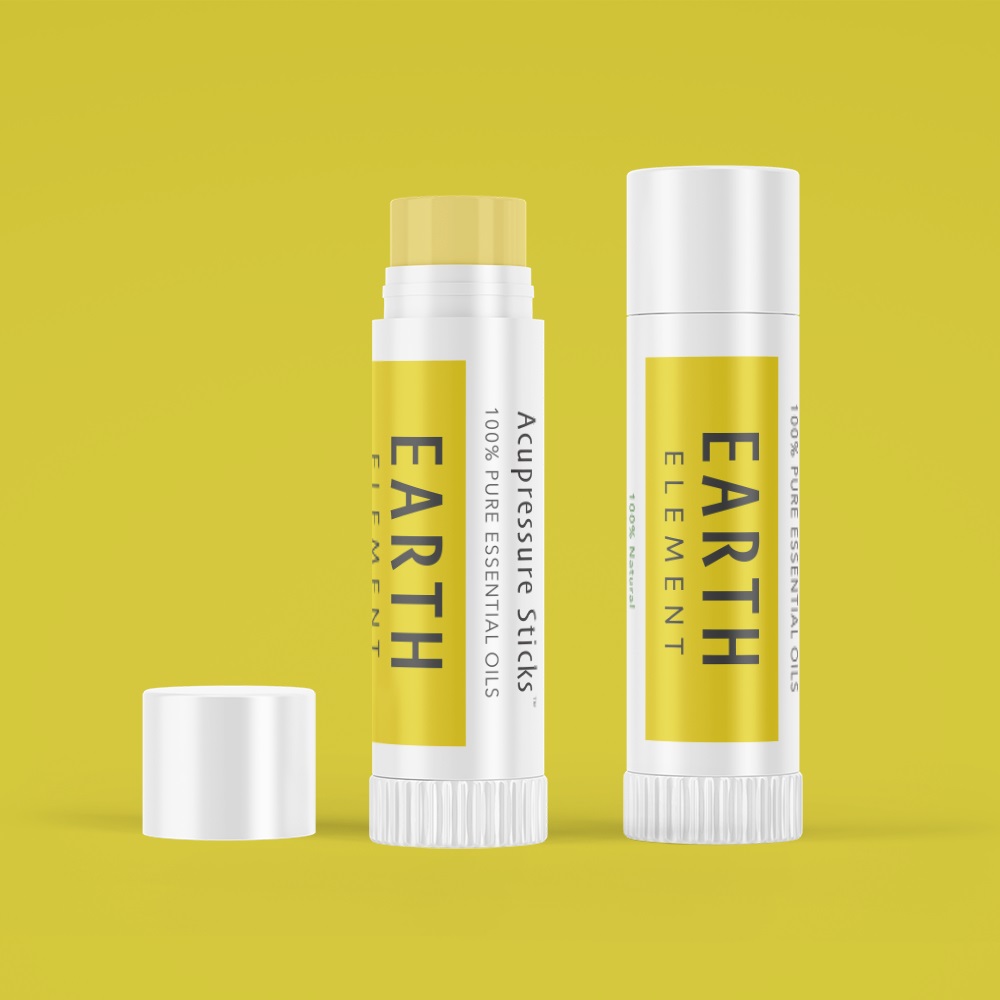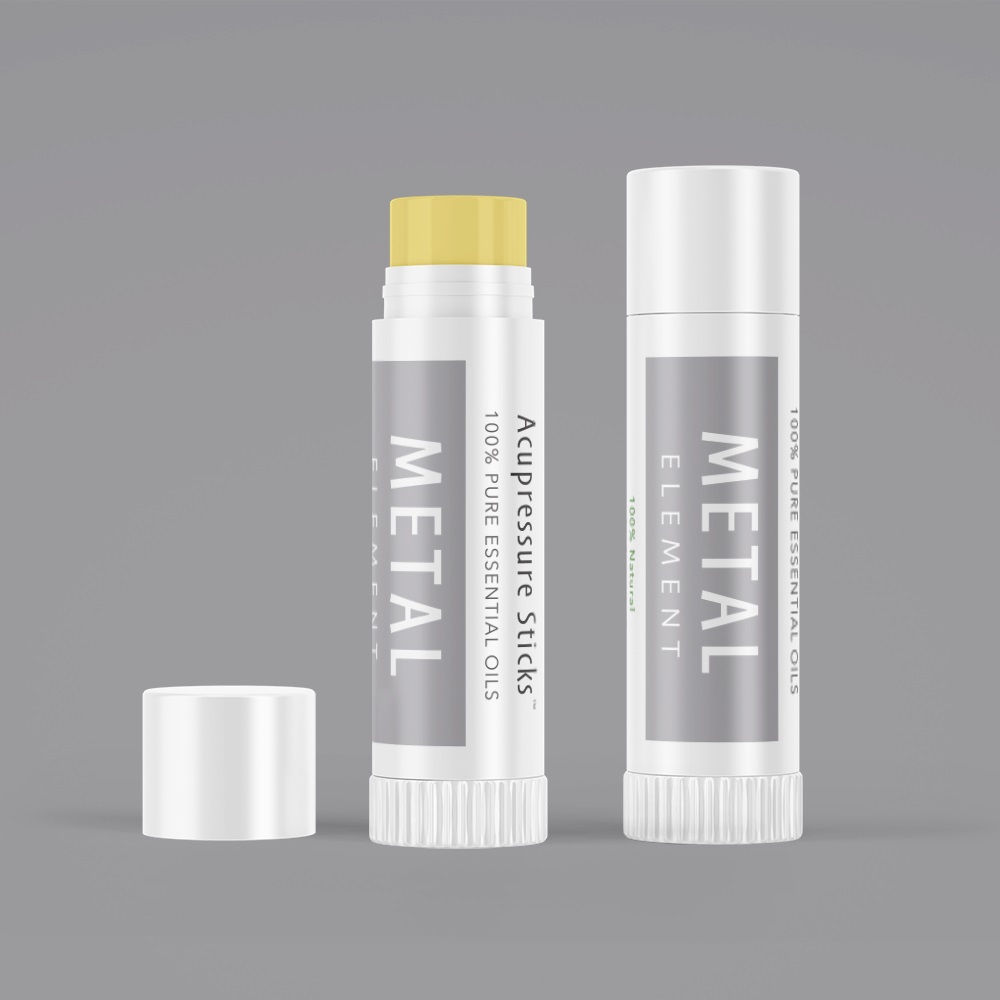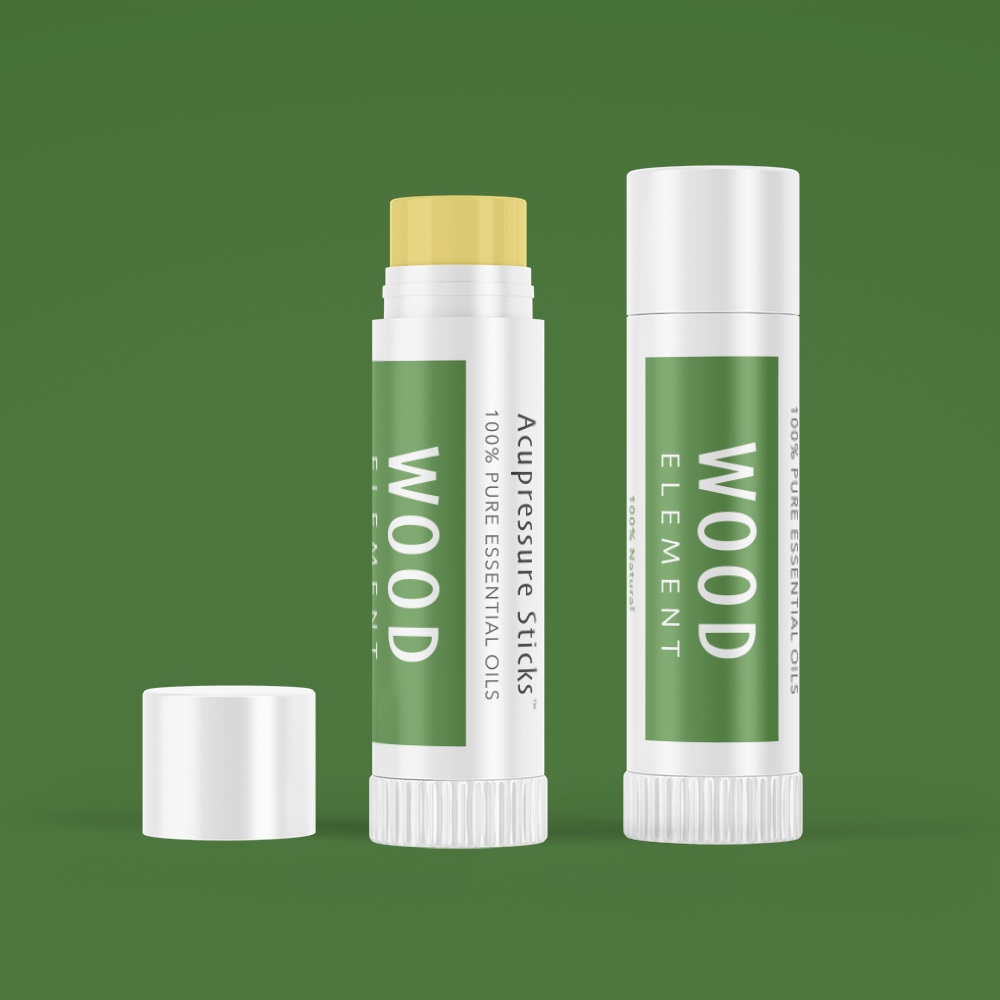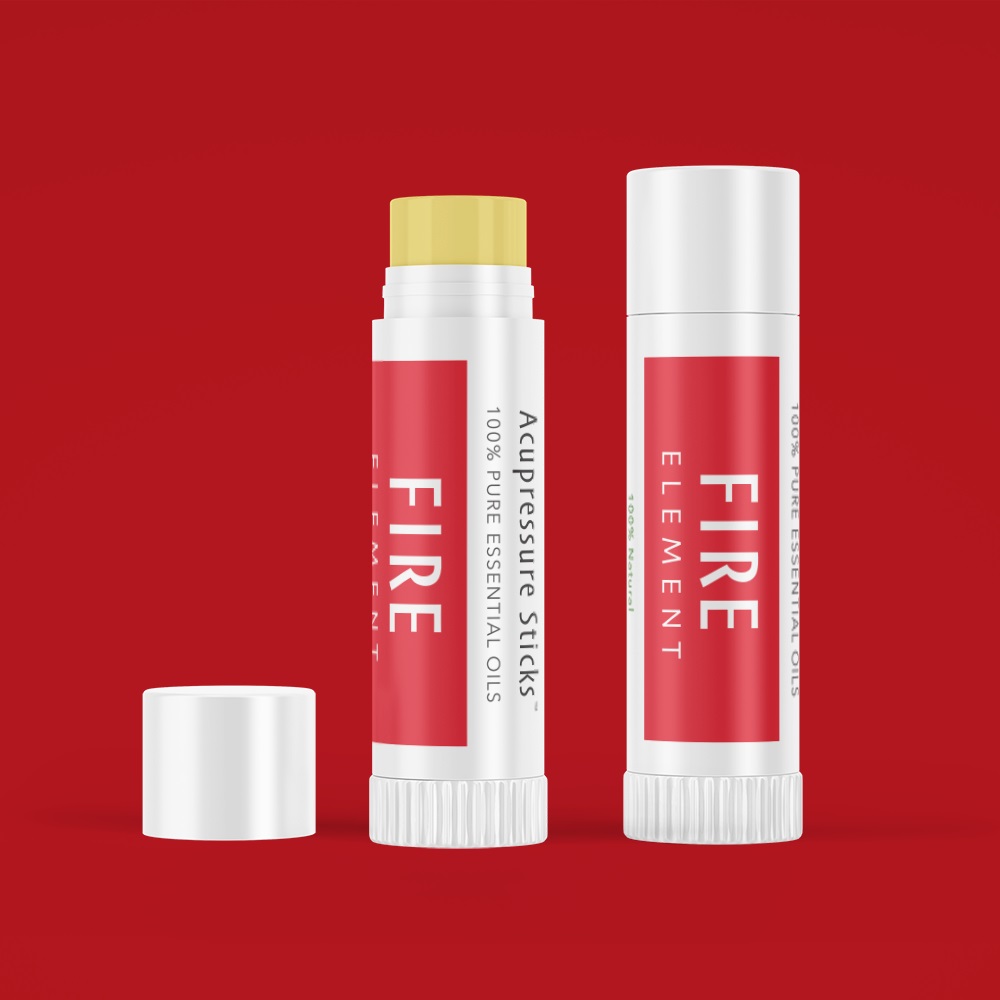Menopause
Peri-Menopause Relief Using Chinese Medicine
Typically, the varied symptoms of menopause are grouped together as random occurrences that have developed due to peri-menopause and menopause.
Here, we have broken down the specific Organ-level imbalances according to Chinese medicine for a better understanding of the actual causes of specific symptoms.
Most women will have multiple indications that must be addressed in order to begin bringing their bodies, minds, and hormones in to balance. For best outcomes using self-care, combine associated Aroma Acu-Sticks® to acupuncture points, topical remedies, and good lifestyle practices.
![]()
Aroma Acu-therapy™ for Peri-Menopausal Symptoms
Kidney 3
Apply the Water Element Aroma Acu-Stick® to activate Acupressure Point KI 3
Why? Acu-point Kidney 3 is the Source Point of the Kidney energetic organ system that governs over Yin which when depleted is the main underlying cause of night sweats and hot flashes according to Traditional Chinese Medicine.
Apply the Earth Element Aroma Acu-Stick® to activate Acupressure Point ST 36
Why? Acu-point Stomach 36 calms the mind, nourishes Qi and Blood, fortifies the Spleen, and boosts vital energy.
Apply the Metal Element Aroma Acu-Stick® to activate Acupuncture Point LI 4
Why? LI 4 works together with Liver 3 to invigorate the circulation of Blood and Qi and is referred to as the "Four Gates" and helps to normalize irregular menstrual bleeding.
Apply the Wood Element Aroma Acu-Stick® to activate Acupressure Point LV 3
Why? The Liver governs over menstrual blood and acu-point LV 3 is the energy source point for the Liver energetic organ system that is able to normalize the Liver function.
Apply the Fire Element Aroma Acu-Stick® to activate Acupuncture Point Pericardium 6
Why? Acu-point PER 6 calms the mind and helps to regulate menstruation.
Related Articles:
Peri-Menopausal Constitutional Imbalances in Chinese Medicine According to Symptoms
It is not uncommon for menopause, and/or the time just before menopause called peri-menopause, to present with more than one of these patterns of imbalance. Each individual woman will experience menopause differently depending on her constitution. Not every single indication is needed to imply an Organ system imbalance, but you would expect several indications to start forming a pattern of imbalance.
Kidney Deficiency and Menopause
The most common indications of menopause, vaginal dryness, and night sweats, are all attributed to Kidney Yin Deficiency Chinese medicine.
- Hot flashes
- Night sweats
- Vaginal dryness
- Increased anxiety and panic
- Stress urinary incontinence
- Thinning hair
Acupressure Point Combination Strategy:
- Apply the Water Element Acupressure Stick to Acupressure Point Kidney 6
- Apply the Water Element Acupressure Stick to Acupressure Point Kidney 3
- Apply the Earth Element Acupressure Stick to Acupressure Point Spleen 6
- Apply the Metal Element Acupressure Stick to Acupressure Point Lung 7
![]()
Liver Imbalances and Menopause
In Chinese medicine, the Liver and Kidney energetic organ systems and their inter-related balance influence hormonal balance greatly.
- Trouble Sleeping
- Emotional Changes
- Mood Swings
- Dizziness
- Breast pain
- Headaches
- Aching joints
- Depression
- Irritability
- Itchy crawly skin
- Brittle cracking fingernails
- Irregular Periods
- Vision changes
- Prolonged bleeding
Acupressure Point Combination Strategy:
- Apply the Metal Element Acupressure Stick to Acupressure Point Large Intestine 4
- Apply the Wood Element Acupressure Stick to Acupressure Point Liver 3
- Apply the Earth Element Acupressure Stick to Acupressure Point Spleen 6
![]()
Heart Imbalances and Menopause
The Heart energetic organ system s at the center of emotions in Chinese medicine, and is grounded by abundant Blood. With Blood Deficiency there are many emotional disturbances with menopause. Abundant Blood is vital for emotional and physical health, but it is also critical that the Blood is well circulated and does not stagnate. This is especially important with the onset of menopause as heart disease becomes more prevalent.
- Trouble Sleeping
- Emotional Changes
- Bouts of Rapid Heart Beat
- Feelings of Dread
- Burning mouth syndrome
- Blood Deficiency and Menopause
- Disturbing Memory Lapses
- Cognitive Changes
- Dizziness
- Tingling Extremities
Acupressure Point Combination Strategy:
- Apply the Fire Element Acupressure Stick to Acupressure Point Pericardium 6
- Apply the Fire Element Acupressure Stick to Acupressure Point Heart 7
- Apply the Metal Element Acupressure Stick to Acupressure Point Large Intestine 4
- Apply the Wood Element Acupressure Stick to Acupressure Point Liver 3
- Apply the Earth Element Acupressure Stick to Acupressure Point Spleen 10
![]()
Spleen Imbalances and Menopause
Spleen Qi Deficiency is not uncommon in our culture, and Qi Deficiency in general has become more and more common with women who find they take on more and more tasks and having less time for recuperation.
- Prolonged bleeding
- Fatigue
- Weight Gain
- Bloating
- Digestive Problems
![]()
Heavy Menstruation and Prolonged Bleeding with Menopause
During the peri-menopausal phase, symptoms of PMS and irregular bleeding are not uncommon. Liver Qi Stagnation and uterine Blood stagnation have symptoms of breast tenderness, cramps, moodiness, and headaches with menstruation. Chinese herbs can soothe Liver Qi Stagnation and break up uterine Blood stagnation to help balance the body and alleviate the upheaval associated with peri-menopausal changes.
![]()
Menopause and the Need to Nourish the Skin
After menopause occurs and menstruation stops, women must take greater care in protecting their heart and building blood that will nourish the skin, joints, hair, and organs. The last thing a woman wants to do is become dried out and brittle. One only has to observe nature to realize that young spring growth is flexible and moist, whereas, dead wood is dry and brittle.
![]()
Traditional Chinese Medical View of Menopause
In Chinese medicine, menopause is often referred to as the 'second spring' because this is when a woman enters into her power years. This is a difficult concept to wrap around a westerner’s mind, since a woman outgrows her value as her beauty fades in our media driven culture. But traditionally, a woman’s value, influence, and power grows as she matures with wisdom; the matriarch once held a high position of respect and reverence, even in our culture.
Menopause signifies the end of a woman's menstrual cycle, not of her value and beauty. The majority of women end their menstruation between the ages of 48 to 52, but uncomfortable symptoms of peri-menopause or pre-menopause can begin as early as forty and can last beyond fifty-five years of age. Women who undergo a hysterectomy or who have their ovaries removed experience menopausal symptoms immediately.
While menopause signifies the beginning of the winter season for bearing children, it has traditionally marked a new spring for women whose time is freed-up for creative endeavors, personal growth, financial ventures, and travel. With its close understanding of the female body, Oriental medicine has always addressed the special needs of women throughout their lives. Menopause, in particular, is an area in which Oriental Medicine shines, helping to relieve uncomfortable symptoms that accompany the onset of menopause.
Menopause from an Eastern Perspective
According to Oriental Medical theory, menopause occurs when a woman's body begins to preserve Blood and energy in order to sustain her through her later years. The Kidney is the organ system in Oriental medicine that is viewed as the root of reproduction, vitality and longevity. Menopause signifies the depletion of the fertility; Essence stored within the Kidneys is depleted. Blood and Essence from the Kidneys are conserved and cycled through the body to nourish the woman's spirit and extend her longevity. Thus, in Oriental medicine, menopause is seen as true change in life from mother to enlightened and wise being.
![]()
Signs of Peri-menopause
A woman may notice that her menstrual cycle changes and become irregular. Breast tenderness, abdominal bloating, mood swings, sweets cravings, and decreased energy can all be part of the peri-menopause experience. As the actual menopause, the cessation of menstruation grows nearer, the symptoms may become more extreme; hot flashes, or "hot flushes", night sweats, vaginal dryness, loss of libido, headaches, insomnia, and moodiness may aggravate the transition.
In Chinese medicine, menopause is considered a normal transition that should pass quickly and smoothly. Modern women experience so much stress throughout their adult lives that our endocrine systems become un-balanced, and menopause becomes yet another source of stress.
![]()
Lifestyle and Dietary Instructions in Menopause
Menopausal women are encouraged to maintain a healthy weight and to follow a diet with a high content of protein, whole foods, and vegetables to stabilize blood sugar. Some foods may exacerbate hot flashes or increase mood swings; limiting the intake of dairy products, red meats, alcohol, sugar, spicy foods, and caffeine can help to decrease hot flashes for some. Menopausal women must also nourish their bodies with foods rich in calcium, omega 3 fatty acids, greens, and protein. Eating a whole food, organic diet is recommended at every stage of life.
Lastly, try to eliminate stress, tension and anxiety; better yet, learn techniques to cope with stress so that you can diminish the effects that it has on your body and mind such as meditation, tai qi, or yoga.
![]()
Understanding Natural Hormones-Phytoestrogens
Obviously, women are avoiding synthetic HRT, and searching for natural ways to balance hormones after recent studies have proven that synthetic hormones may do more harm than good. Few areas of women's health stir up as much confusion and debate as Hormone Replacement Therapy (HRT), which is normally started when the first symptoms of menopause appear. While HRT may alleviate hot flashes and prevent osteoporosis, they may also increase the risk of breast, ovarian and uterine cancer, and have a number of significant side effects. Oriental medicine has long recognized that health and vitality can be sustained over a woman's lifetime by restoring balance within the body and supporting the natural production of essential hormones.
Many women believe that bio-identical hormones are made from herbs, and many informative websites and pamphlets that I have read do tend to suggest that bio-identical hormones are based in herbs. The truth is that bio-identical hormones are very much man made; the chemical compounds are identical to hormones found in the body, but bio-identical hormones were developed in a chemistry lab. Often, this process starts with wild yam herb, as it contains hormone-like chemical constructs that are building blocks for developing bio-identical hormones; however, bio-identical hormones are not herbal.
Phyto-estrogens are substances that are found in many herbs. While phyto-estrogens are not human estrogens, and a not bio-identical to human estrogens, they have been proven to be beneficial to women’s health and influence hormonal balance in the body. Patients sometimes have concerns over phyto-estrogens, especially if they have had breast cancer, or if their family has a history of breast cancer. Utilizing foods and herbs through traditional methods has not only been proven safe and helpful in these situations, but phyto-estrogens can actually protect from breast cancer.
![]()
Hot Flashes and Chinese Medicine
Chinese medicine reduces nighttime hot flashes caused by menopause, according to a study published in the journal, Fertility and Sterility. Researchers found that seven weeks of acupuncture treatment reduced the severity of nighttime hot flashes by twenty-eight percent among menopausal women compared with a six percent decrease among women who had a sham acupuncture treatment.
The effects of acupuncture vs. a sham acupuncture treatment on the severity and frequency of nighttime hot flashes were compared. Taking part in the study were twenty-nine menopausal women experiencing at least seven moderate to severe hot flashes per day.
All of the women underwent nine treatments from trained acupuncturists in sessions over seven weeks. Twelve of the women received real acupuncture using points selected to target hot flashes and sleepiness. The rest of the women received a sham acupuncture treatment using non-penetrating needles at random acupuncture channel points.
Throughout the study, the women reported the number and severity of their hot flashes. The results showed that nighttime hot flash severity decreased significantly (twenty-eight percent) among the women who received acupuncture vs. a six percent drop among the women who got the sham treatment. However, they did not see a similar finding in the frequency of nighttime hot flashes between the two groups.
![]()
Armand M, Ozgoli G, Giti RH, Majd HA. Effect of Acupressure on Early Complications of Menopause in Women Referring to Selected Health Care Centers. Iran J Nurs Midwifery Res. 2017 May-Jun;22(3):237-242. doi: 10.4103/1735-9066.208165. PMID: 28706550; PMCID: PMC5494955.
Abedian Z, Eskandari L, Abdi H, Ebrahimzadeh S. The Effect of Acupressure on Sleep Quality in Menopausal Women: A Randomized Control Trial. Iran J Med Sci. 2015 Jul;40(4):328-34. PMID: 26170519; PMCID: PMC4487458.
Shinohara K, Doi H, Kumagai C, Sawano E, Tarumi W. Effects of essential oil exposure on salivary estrogen concentration in perimenopausal women. Neuro Endocrinol Lett. 2017 Jan;37(8):567-572. PMID: 28326753.
Nikjou R, Kazemzadeh R, Asadzadeh F, Fathi R, Mostafazadeh F. The Effect of Lavender Aromatherapy on the Symptoms of Menopause. J Natl Med Assoc. 2018 Jun;110(3):265-269. doi: 10.1016/j.jnma.2017.06.010. Epub 2017 Aug 18. PMID: 29778129.
Befus D, Coeytaux RR, Goldstein KM, McDuffie JR, Shepherd-Banigan M, Goode AP, Kosinski A, Van Noord MG, Adam SS, Masilamani V, Nagi A, Williams JW Jr. Management of Menopause Symptoms with Acupuncture: An Umbrella Systematic Review and Meta-Analysis. J Altern Complement Med. 2018 Apr;24(4):314-323. doi: 10.1089/acm.2016.0408. Epub 2018 Jan 3. PMID: 29298078.
This information has not been evaluated by the Food and Drug Administration. This information is not intended to diagnose, treat, cure, or prevent any disease.

